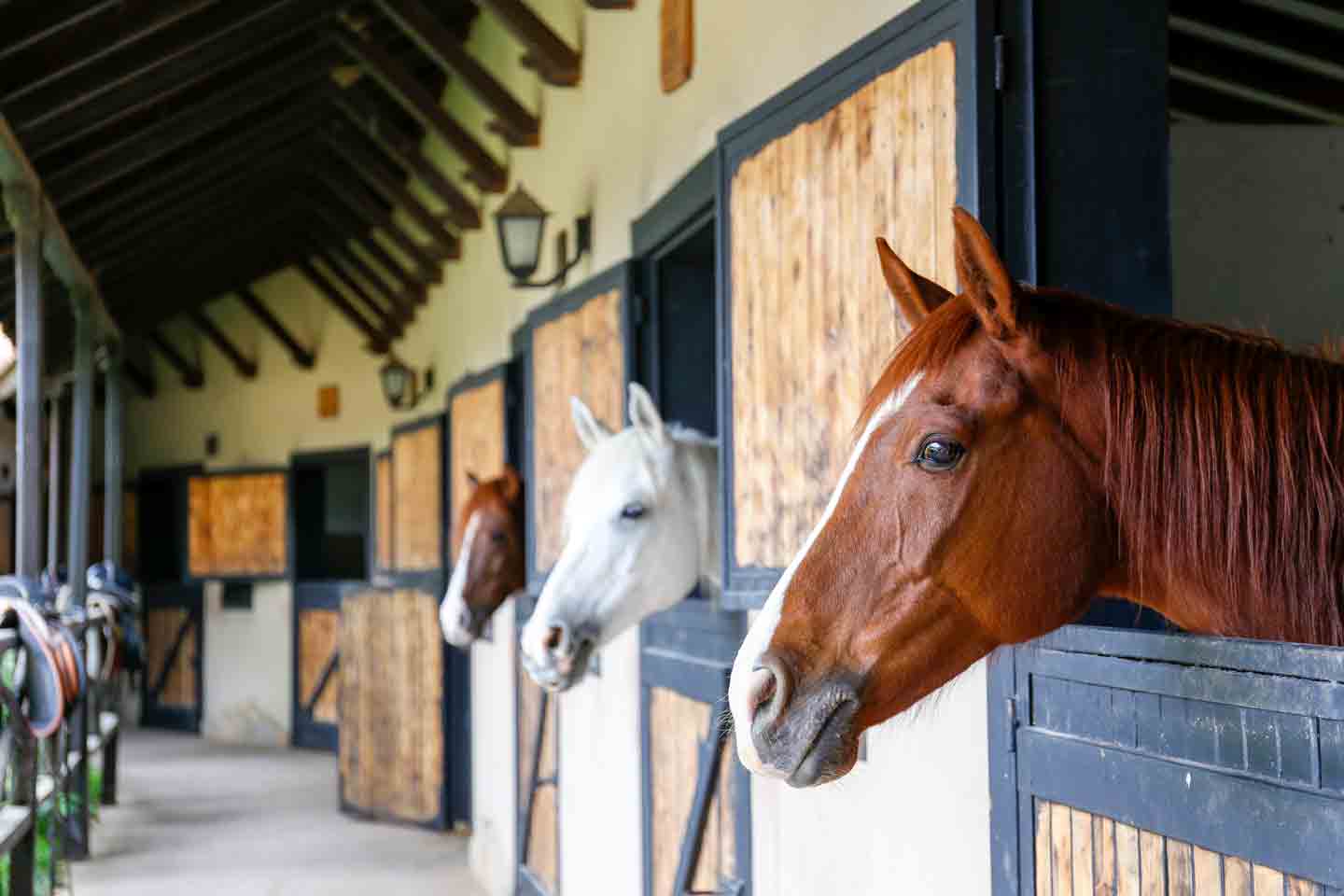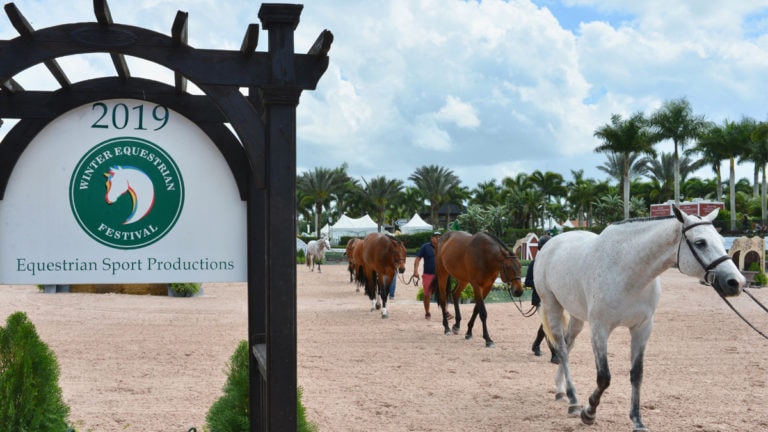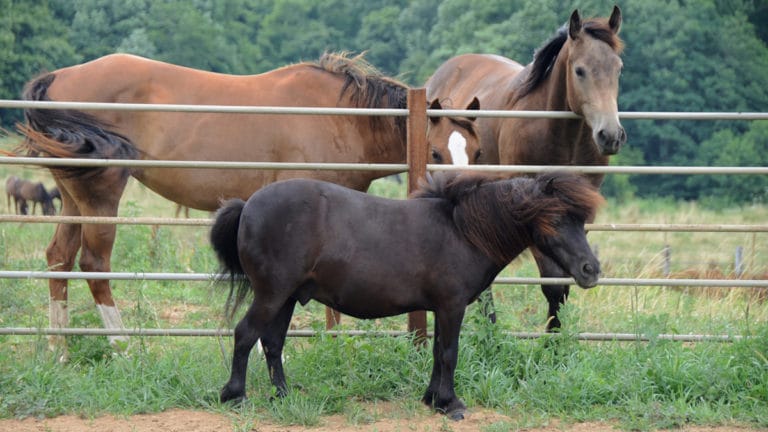In This Guide
Should You Board Your Horse?
Before deciding on a boarding barn, it’s worth asking yourself if boarding is the best option, or if your horse can live at home. If you have the land, infrastructure, time, knowledge and skills necessary to house and care for your horse(s) right on your property, this can be a great option for you and your equine friend. They also need companionship from other horses, or at least another farm animal. That’s a lot of requirements! Many equestrians, therefore, choose to keep their horses at a professional boarding facility.
There are many benefits to boarding your horse:
- Less work and fewer responsibilities. In most situations, your boarded horse is being taken care of regardless of whether you can make it out to the barn. This gives you more flexibility in your own life.
- Peace of mind that a team of professionals is meeting your horse’s daily needs
- Access to riding facilities (in most cases)
- A community of fellow horse lovers
However, there are also drawbacks to boarding your horse, which make keeping them at home seem attractive:
- Limited control over your horse’s care
- Less time with your horse
- Cost. Boarding is a professional service that usually comes with a higher price tag than doing everything yourself at home.

Types of Horse Boarding
Any horse boarding situation will include housing for your horse, just like paying rent provides a roof over your own head. Beyond that, the specifics vary, and having a boarding contract outlining exactly what is and isn’t included in the board price is always a smart idea. Here are the four common board options for you and your horse:
Self-care, aka ‘rough board’
With this arrangement, the barn owner allows you to keep your horse on their property, but the responsibility of caring for the animal falls on you, the horse owner. You might also need to provide your own hay, grain and shavings. “Having a horse in self-care can be challenging, since you need to be present for the horse throughout the day,” says Emerson Stanka, co-owner of San Francisco Stables, a hunter/jumper boarding and training facility based in Wellington, Florida. “You need the time and the expertise to do everything yourself.”
Field board
If your horse doesn’t need a stall, field board (sometimes called pasture board) is a cost-effective and relatively low-labor alternative. Your horse lives outside in a field with a herd. While you don’t have to worry about cleaning their stall or turning them out every day, the field needs to be properly maintained, and your horse still needs feed, water and care.
Partial board
This option is flexible and situation-dependent. In a partial care boarding situation, the barn provides housing along with some of the care and supplies for your horse, and you are responsible for whatever is left. This could mean your horse is fed and watered, and their stall cleaned, but you may still have to come blanket and turn them out yourself.
Full care
In a full-care boarding situation, the boarding stable staff is in charge of providing all daily care, and your horse will have their needs met regardless of whether you come to the barn on a particular day. “All responsibilities associated with your horse are covered; you just have to ride him,” Stanka says. “This is a great option if you do not have the time or expertise to take care of a horse on your own, [this] and can allow you to concentrate on your riding.” Full board is the most convenient option—and that’s usually reflected in the price tag!
How Much Does Horse Boarding Cost?
Speaking of the price tag, let’s talk about the cost of horse boarding. As a boarder, your monthly investment can vary a lot. Factors like location, amenities and level of care all influence the bill. Horse owners in rural areas who keep their equines at home and feed them primarily from the land (grass and homegrown hay) can get away with as little as $100/month per horse.
At the other end of the spectrum, full-care competition barns with all amenities can charge over $2,000 per month. Most boarding options fall somewhere in between, ranging $400 to $1,200/month for full care board in most parts of the United States.
Factors to Consider When Choosing a Stable
We turned to a veterinarian for advice on choosing a facility that’s safe, healthy and comfortable for your equine partner. “The most important factor to consider when choosing a boarding facility is horse health at that facility,” says Dr. Jesslyn Bryk-Lucy, a New-Jersey based equine veterinarian who boards one of her horses and keeps the others at home. “The first thing you should do when visiting a prospective boarding barn is make sure the animals’ basic needs are met.”
Let’s take a look at factors that affect your horse:
- Sufficient forage and clean water: “Check if the horses have clean water in their stalls and paddocks,” says Dr. Bryk-Lucy. “Horses should also have free access to hay. Look at the body condition of the horses on the property; this can tell you a lot about how much is being fed. There may be a couple that are hard keepers”—aka horses who need a lot of food to maintain a healthy weight—”but the majority should be in good weight, not skinny.”
- Turnout access: Daily turnout (aka allowing the horses access to the outdoors) is another basic need of horses, Dr. Bryk-Lucy says. “Ask about the turnout schedule, and ask to see the paddocks (aka the fenced fields where horses are allowed to roam). Note the type and condition of the fencing. Don't be alarmed by some mud around gates and along fence lines, but the majority of the pasture should be dry. Look at how many horses are in different-size fields; overcrowding will likely lead to injury.” Generally, each horse needs at least 2 acres if the horse relies on grass for nutrition. Horses whose diet is supplemented with hay can make do with less space.
- Caretakers and staff: Dr. Bryk-Lucy says it’s important to have knowledgeable staff in charge of your horse's daily care. “Experienced horse people will be able to notice abnormalities; know whether an issue needs immediate veterinary care; and administer basic first aid,” she says. “They are a wealth of knowledge and can answer your questions about horse health.” To find knowledgeable staff, ask equestrians you know for referrals. You can also ask the staff themselves how long they’ve worked in the field; a longer career generally (but not always) means more knowledge. A formal degree in equine science or management is a plus, but not necessarily a requirement.
- Preventative healthcare plan: “Ask the barn manager about their vaccination and parasite control protocols,” Dr. Bryk-Lucy says. “A strategic preventative healthcare plan, including immunization and deworming for the herd, helps reduce the risk of your own horse contracting an infectious disease or ingesting grass infested with internal parasites.”
Now, let’s look at factors that affect you, the horse owner:
- Location: Consider the commute you’ll have to make from work and home to ride your horse. Decide how much you are willing to drive.
- Riding facilities: If riding is important to you, make sure the barns you are considering have a riding arena. If you live in a part of the country that has cold, long winters, an indoor arena is a must. Additionally, depending on your chosen discipline, you may also need a reputable horse trainer who offers riding lessons and has access to specialized equipment. This can look like barrels for barrel racers; dressage letters for dressage riders; and jump standards and poles for jumpers.
- What is and isn’t included: Do you have to provide your own grain? Blanket and unblanket your horse yourself? If you go out of town for a week, is the barn staff able to groom your horse and pick their hooves for you? Ask these important questions before making a decision.
FAQs About Horse Boarding
Q:
What is horse boarding?
Q:
What does horse boarding typically include?
Q:
What amenities should I expect at a horse boarding facility?
“It is not always the fanciest, most expensive farm that offers the best care,” says Dr. Bryk-Lucy. “The barn can be very basic and safe, but offer quality feed, water, turnout and knowledgeable staff who keep your horse healthy.
Struggling with your horse allergies? Use these tips to get back in the saddle.
Expert input provided by Dr. Jesslyn Bryk-Lucy, DVM, cAVCA, assistant professor of equine studies at Centenary University and founder and owner of Leg Up Equine Veterinary Services, both in New Jersey; and Emerson Stanka, co-owner of San Francisco Stables, a hunter/jumper boarding and training facility based in Wellington, Florida.
More About Horses
Share:









